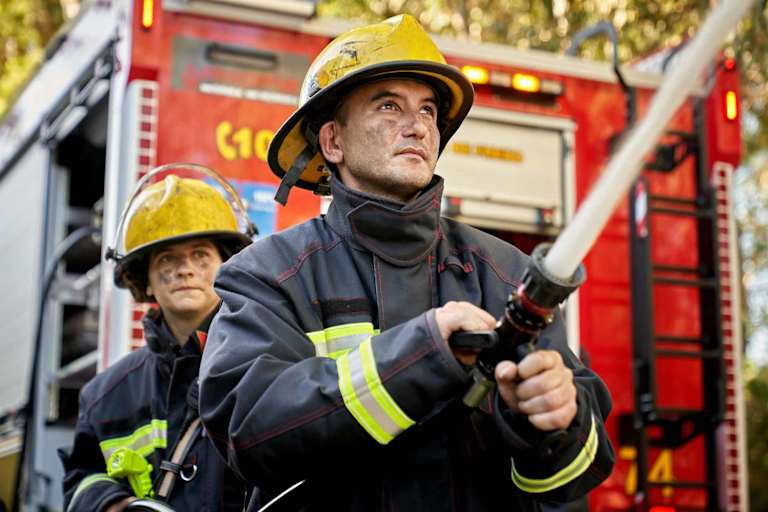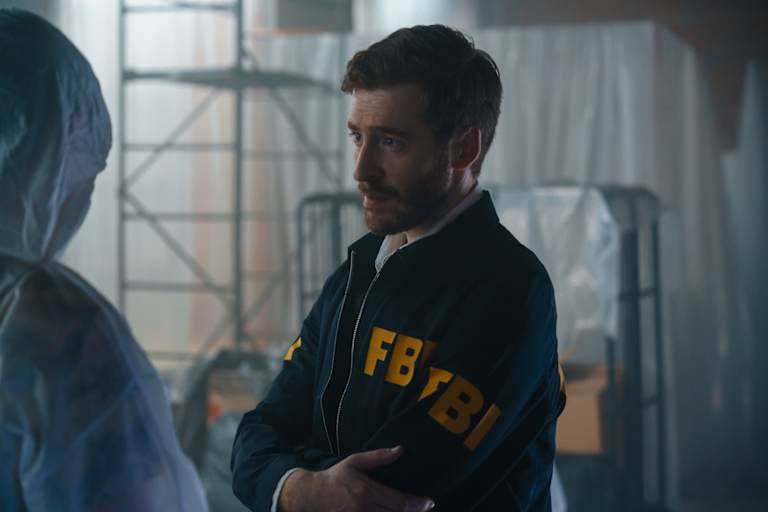What to Know About Being a Police Officer
Portions of the following article were drafted using an in-house natural language generation platform. The article was then reviewed, fact-checked, and edited by multiple members of our editorial team prior to publishing.
More than 807,000 law enforcement officers work in the United States, according to the Bureau of Labor Statistics (BLS). Police officers perform various duties, including investigating illegal activity, patrolling and making arrests, and maintaining records. Community members depend on police officers to enforce the law.
Folks considering becoming police officers can benefit from strong attention to detail. Most successful police officers also exhibit critical thinking abilities and prefer flexibility in their work. Good communication skills can be an advantage when interacting with the public.
Individuals who are at least 21 years old can enroll in a police academy if they hold a high school or equivalent diploma. You do not need a degree in order to pursue employment as an officer. However, some candidates have an associate or bachelor’s degree. Candidates must also be U.S. citizens and have no drug or felony convictions.
Is a career in law enforcement right for you? This guide can help you decide.
What Does a Police Officer Do?
Police officers are among the broad group of law enforcement professionals who preserve public safety and collect evidence of criminal activity. According to the BLS, police officers perform many duties, including:
- Patrolling assigned areas
- Making traffic stops and issuing citations
- Writing reports and filling out forms
- Collecting evidence at crime scenes
- Arresting people who have committed crimes
- Searching databases for warrants and records
- Responding to emergencies
- Testifying in court
Police officers can seek positions at the city, state, or federal level. Most of them are employed full time — they may work overtime and take night shifts. Although many duties remain standard, they can vary by the employer and the specific role.
What Is a Police Officer’s Career Outlook?
Communities will always need police officers who help maintain public safety, protect lives and property, and reduce and prevent illegal activities. Cities of all sizes require police officers and other law enforcement professionals’ protection — even when crime rates appear to go down.
The BLS projects that jobs for police officers and detectives will grow 3% between 2022-2032, compared to the 8% projected growth for all occupations. Demand varies based on local and state budgets and the need to replace retiring officers. In some areas, the necessity of law enforcement will grow along with continued threats of terrorism and increased attention toward border security.
Police officers can expand their job opportunities through additional skills training and promotions. Professionals who hold a bachelor’s degree or speak another language besides English may also qualify for higher-level positions. Advancement opportunities might not exist as much where there are cuts in municipal budgets.
What Is a Police Officer’s Salary and Growth Potential?
According to the BLS, police officers and detectives made a median annual salary of $69,160, as of May 2022. This is much higher than the $46,310 median annual wage for all occupations. Police officers working as detectives and criminal investigators make more while those working as fish or game wardens tend to earn less. The BLS reports that the highest-paid officers made a median annual salary of $109,580.
Police ranks look similar to hierarchical levels in the military. At the start of their careers, most individuals start as technicians or officers. They typically move up as they gain experience and earn more pay, with some reaching the position of police chief. Police ranks vary by region and locality, but they generally follow this progression:
- Police technician
- Police officer, patrol officer, or police detective
- Police corporal
- Police sergeant
- Police lieutenant
- Police captain
- Deputy police chief
- Chief of police
After a probationary period, most officers can advance based on job performance and scores on written examinations. Individuals might be required to have a bachelor’s degree to qualify for some promotions. Career advancement might involve work in specialized areas, such as homicide or juveniles.
Challenges Faced by Police Officers
Being a police officer can be a challenging profession. Officers face numerous hurdles, including hiring and maintaining personnel, coping with potential legal implications from on-duty actions, and preserving officer well-being and morale. According to a 2023 report by the Bureau of Justice Assistance, recruitment and retention are big concerns, which impact safety and job distribution in understaffed departments.
The profession also exposes officers to physical and psychological challenges, which can adversely affect their wellness. Physical challenges include potential harm or fatality, confrontations with violence, and irregular working hours. On a psychological level, officers grapple with the high-pressure aftermath of critical incidents, exposure to traumatic events, and the need to stay alert. Unfortunately, mental health concerns such as depression, anxiety, and PTSD are widespread among police officers, surpassing the rates in the general public, per the Bureau of Justice Assistance report.
Everyday struggles, such as navigating departmental politics, facing public scrutiny, and dealing with the emotional toll of witnessing human suffering and losing fellow officers, add to the challenges. Additionally, the demanding nature of the job can disrupt personal life, with erratic schedules and long hours impacting relationships with loved ones.
Officers may also be exposed to hazards while performing their duties. The BLS reports that policing ranks among the top 10 riskiest professions in the U.S., and officers are more prone to injuries and illnesses from non-violent encounters during their regular work routines.
Alternative Paths in Law Enforcement
For those who wish to transition from a traditional police role, there are several alternative career paths available that capitalize on the skills and experiences gained in law enforcement.
These alternatives can potentially provide improved job satisfaction, higher salaries, or reduced stress compared to traditional police roles. Some of these paths include roles in victim support, forensic auditing, fire inspection, politics, private investigation, and cybersecurity.
Other alternative careers in law enforcement include:
- Intelligence analysis
- Personal security
- Fraud investigation
- Higher education
- Background investigation
- Crime scene investigation
- Software engineering
Within law enforcement agencies, there are also numerous pivotal civilian roles. These include:
- Civilian investigators
- Crime analysts
- Crime prevention and community outreach specialists
- Dispatchers
- Equipment and fleet management personnel
- Forensic technicians
- IT specialists
- Intelligence analysts
- Parking enforcement officers
- Planners and researchers
- Property and evidence management personnel
- Public information officers
- Records management staff
- Victim services providers and advocates
Transitioning from the role of a police officer to another position within law enforcement involves articulating your police skills in a way that the general population will understand, developing connections within your chosen field, and potentially pursuing further education or qualifications.
Frequently Asked Questions About Becoming a Police Officer
While not all agencies require a college degree to become a police officer, a high school diploma or GED certificate is generally a minimum requirement. Some departments may require higher education such as an associate or bachelor’s degree, or a certain number of college credits. Requirements can vary significantly by state and department.
Explore More College Resources

Most Affordable Online Criminal Justice Degrees
If you want to be a police officer, detective, or investigator, you need a degree. Find out more about the cheapest online criminal justice degrees.

by Holland Webb
Updated September 30, 2023



